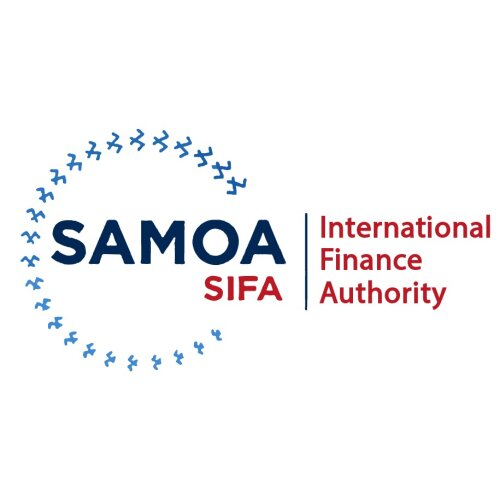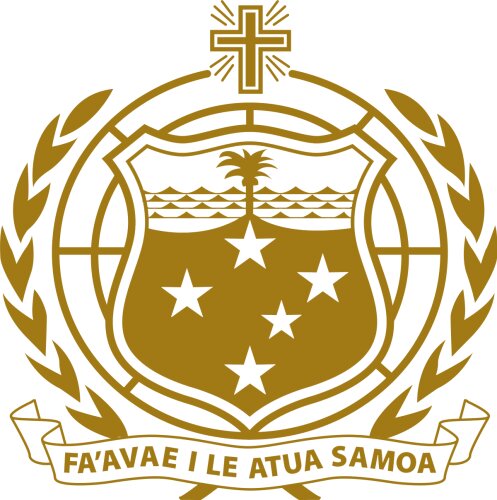Best Public-Private Partnerships (PPP) Lawyers in Samoa
Share your needs with us, get contacted by law firms.
Free. Takes 2 min.
Or refine your search by selecting a city:
List of the best lawyers in Samoa
About Public-Private Partnerships (PPP) Law in Samoa
Public-Private Partnerships (PPP) are collaborative projects where the government partners with private sector entities to finance, build, and operate infrastructure and public services. In Samoa, PPPs are increasingly considered as a strategic approach to enhance infrastructure development, boost service delivery, and foster economic growth. Although still an emerging field, Samoa’s government actively seeks to create a conducive legislative and regulatory environment to attract private sector investment while ensuring public interests are safeguarded. PPP arrangements in Samoa often center on areas such as transport, energy, water, health, and education infrastructure.
Why You May Need a Lawyer
Legal guidance is crucial for anyone involved in or considering a PPP in Samoa. Here are some common situations where people seek legal advice:
- Understanding the PPP process, regulations, and legal requirements - Drafting and reviewing PPP project agreements and contracts - Navigating government permissions, tenders, and procurement rules - Managing disputes or renegotiations between public and private partners - Ensuring compliance with local, regional, and international laws - Advising on risk allocation, financing, liability, and performance standards - Undertaking due diligence and risk assessments for project feasibility - Addressing land acquisition, environmental, and social impact matters - Advising on tax, investment, and customs incentives for PPP projects - Guiding international investors on Samoa-specific legal issues
Local Laws Overview
Samoa’s legal framework for PPPs is shaped by a blend of local statutes, governmental policies, and international best practices for infrastructure partnerships. The most relevant legal areas and documents include:
- Public Finance Management Act 2001: Outlines government financial procedures and approvals for public projects, including PPPs. - Public Procurement Act 2021: Regulates procurement processes, tendering, and the fair selection of private partners. - Foreign Investment Act 2000: Governs the participation of foreign investors in public infrastructure projects. - Land and Titles Act 1981 and Customary Land: Addresses land acquisition and use, which is crucial since over 80 percent of Samoan land is customary. - Environmental and Planning Legislation: Ensures PPP projects comply with necessary environmental impact regulations and local planning laws. - Contract Law (Common Law and Statutes): Covers the drafting and enforcement of contracts between parties. - Taxation Laws: Provide information about the tax regime and potential incentives for infrastructure investment.
The government also relies on policy guidelines and sector-specific regulations to guide PPP arrangement details and ensure transparency, accountability, and value for money.
Frequently Asked Questions
What is a Public-Private Partnership (PPP)?
A Public-Private Partnership (PPP) is a cooperative arrangement between a public agency and a private entity to develop, finance, and operate infrastructure or provide public services.
Are PPPs common in Samoa?
PPPs are still emerging in Samoa but are increasingly encouraged by the government to accelerate infrastructure improvements and attract private sector expertise and funding.
Can international companies participate in PPPs in Samoa?
Yes, international companies can participate, but they must comply with the Foreign Investment Act and obtain relevant approvals from the Ministry of Commerce, Industry and Labour.
What sectors typically use PPPs in Samoa?
Common sectors include transportation (roads, ports, airports), energy, water, health care, housing, and education infrastructure projects.
How are PPP contracts structured?
Contracts generally outline risk sharing, financial arrangements, milestones, performance standards, dispute resolution, and how ownership or operations transfer at project completion.
What role do government agencies play in PPPs?
Government agencies typically initiate PPP projects, manage procurement and tendering, oversee project implementation, and ensure public accountability.
How are disputes in PPPs resolved?
Disputes are often addressed first through negotiation or mediation; if unresolved, they may proceed to arbitration or the Samoan courts, depending on the contract terms.
What are the main risks with PPPs?
Key risks include project delays, cost overruns, revenue shortfalls, legal compliance failures, or changes in government policy affecting project viability.
Do PPPs require environmental approvals?
Yes, PPP projects must comply with environmental regulations and obtain relevant permits or clearances to proceed.
How can a lawyer help with a PPP?
A lawyer can offer comprehensive support, including contract drafting and review, legal risk assessment, negotiation, regulatory compliance, and representation in any disputes.
Additional Resources
If you are seeking more information on PPPs in Samoa or need support, consider reaching out to the following organizations:
- Government of Samoa, Ministry of Finance: Provides guidelines on public investments and project financing - Ministry of Commerce, Industry and Labour: Advises on foreign participation, investment approvals, and regulatory compliance - Samoa Law Reform Commission: Offers resources on evolving legal frameworks, including procurement and public finance - Chamber of Commerce and Industry Samoa: Supports businesses and investors interested in infrastructure partnerships - Samoa Public Service Commission: Ensures good governance in public sector dealings, including PPP oversight
Next Steps
If you are considering or already involved in a PPP in Samoa and need legal advice, follow these steps:
1. Clearly define your goals and gather all relevant project information. 2. Identify the most suitable law firms or legal professionals experienced in PPPs and infrastructure projects in Samoa. 3. Schedule an initial consultation to discuss your project, objectives, and specific legal concerns. 4. Prepare a list of questions or concerns to discuss during your meeting. 5. Ensure you understand the legal fees, the advice provided, and any follow-up actions required. 6. Work closely with your legal advisor to navigate regulatory, contractual, and compliance matters, and continue to seek legal guidance as your PPP progresses.
Working with a knowledgeable lawyer will help safeguard your interests, ensure compliance, and facilitate a successful project outcome.
Lawzana helps you find the best lawyers and law firms in Samoa through a curated and pre-screened list of qualified legal professionals. Our platform offers rankings and detailed profiles of attorneys and law firms, allowing you to compare based on practice areas, including Public-Private Partnerships (PPP), experience, and client feedback.
Each profile includes a description of the firm's areas of practice, client reviews, team members and partners, year of establishment, spoken languages, office locations, contact information, social media presence, and any published articles or resources. Most firms on our platform speak English and are experienced in both local and international legal matters.
Get a quote from top-rated law firms in Samoa — quickly, securely, and without unnecessary hassle.
Disclaimer:
The information provided on this page is for general informational purposes only and does not constitute legal advice. While we strive to ensure the accuracy and relevance of the content, legal information may change over time, and interpretations of the law can vary. You should always consult with a qualified legal professional for advice specific to your situation.
We disclaim all liability for actions taken or not taken based on the content of this page. If you believe any information is incorrect or outdated, please contact us, and we will review and update it where appropriate.
Browse public-private partnerships (ppp) law firms by city in Samoa
Refine your search by selecting a city.












